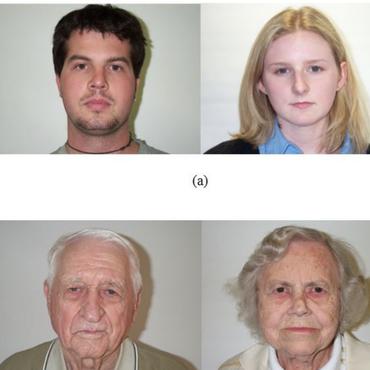Search Results for author: Rajat Mani Thomas
Found 7 papers, 3 papers with code
fMRI-S4: learning short- and long-range dynamic fMRI dependencies using 1D Convolutions and State Space Models
1 code implementation • 8 Aug 2022 • Ahmed El-Gazzar, Rajat Mani Thomas, Guido van Wingen
Single-subject mapping of resting-state brain functional activity to non-imaging phenotypes is a major goal of neuroimaging.
Improving the Diagnosis of Psychiatric Disorders with Self-Supervised Graph State Space Models
no code implementations • 7 Jun 2022 • Ahmed El Gazzar, Rajat Mani Thomas, Guido van Wingen
We show that combining the framework and Graph-S4 can significantly improve the diagnostic performance of neuroimaging-based single subject prediction models of MDD and ASD on three open-source multi-center rs-fMRI clinical datasets.
Dynamic Adaptive Spatio-temporal Graph Convolution for fMRI Modelling
1 code implementation • 26 Sep 2021 • Ahmed El-Gazzar, Rajat Mani Thomas, Guido van Wingen
The characterisation of the brain as a functional network in which the connections between brain regions are represented by correlation values across time series has been very popular in the last years.
Improving Solar Cell Metallization Designs using Convolutional Neural Networks
1 code implementation • 8 Apr 2021 • Sumit Bhattacharya, Devanshu Arya, Debjani Bhowmick, Rajat Mani Thomas, Deepak Kumar Gupta
Recently, it has been shown that Topology Optimization (TO) can be used to design complex metallization patterns for solar cells that lead to improved performance.
A Hybrid 3DCNN and 3DC-LSTM based model for 4D Spatio-temporal fMRI data: An ABIDE Autism Classification study
no code implementations • 14 Feb 2020 • Ahmed El-Gazzar, Mirjam Quaak, Leonardo Cerliani, Peter Bloem, Guido van Wingen, Rajat Mani Thomas
Functional Magnetic Resonance Imaging (fMRI) captures the temporal dynamics of neural activity as a function of spatial location in the brain.
Fusing Structural and Functional MRIs using Graph Convolutional Networks for Autism Classification
no code implementations • MIDL 2019 • Devanshu Arya, Richard Olij, Deepak K. Gupta, Ahmed El Gazzar, Guido van Wingen, Marcel Worring, Rajat Mani Thomas
We alleviate the use of such non-imaging metadata and propose a fully imaging-based approach where information from structural and functional Magnetic Resonance Imaging (MRI) data are fused to construct the edges and nodes of the graph.
Simple 1-D Convolutional Networks for Resting-State fMRI Based Classification in Autism
no code implementations • 2 Jul 2019 • Ahmed El Gazzar, Leonardo Cerliani, Guido van Wingen, Rajat Mani Thomas
Deep learning methods are increasingly being used with neuroimaging data like structural and function magnetic resonance imaging (MRI) to predict the diagnosis of neuropsychiatric and neurological disorders.


